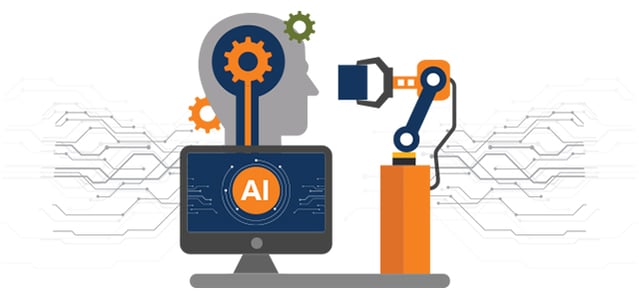 From the early robotics of the 1950s to the advanced, algorithm-driven machine learning of today, AI has come a long way in a short amount of time. Though AI is still relatively young, QASource has found that AI's current and potential value to automated testing is massive. With the increasing complexity of applications, the lightning-fast speed of the software development lifecycle, and the highly competitive time to market across industries, engineers will take all the help they can get, whether it be from machines or other humans.
From the early robotics of the 1950s to the advanced, algorithm-driven machine learning of today, AI has come a long way in a short amount of time. Though AI is still relatively young, QASource has found that AI's current and potential value to automated testing is massive. With the increasing complexity of applications, the lightning-fast speed of the software development lifecycle, and the highly competitive time to market across industries, engineers will take all the help they can get, whether it be from machines or other humans.
So, why exactly is AI beneficial to automated testing services? Put simply, it allows the machine to learn and understand environments, perform “intelligent” actions, and improve itself automatically.
Let’s take a look at how these three capabilities will improve your automated testing program in the near future — and how it will save you untold amounts of time, money, and resources.
Failure prediction
A QA engineer’s biggest asset is his/her experience. Depending on the domains they’re working in, seasoned testing experts are familiar with common bugs. They may even be able to predict where they will occur within the application.
Now, imagine programming an AI bot with the combined knowledge of a team of such engineers. In the future, AI bots will use predictive learning to detect show-stopping bugs much earlier in the development lifecycle.
Minimize exhaustive testing
Though automated testing is already a game-changer, it can get even faster with help from AI. Even with a great automation program in place, engineers must still manually test edge cases and other complex configurations. AI bots may soon be responsible for driving these sorts of tests, along with repetitive manual tasks like clicking buttons in an interface, inputting valid and invalid data into text fields, and more.
Drive performance testing
Imagine testing every action within your application, catching all of your regression defects after each completed build, and seeing a clear analysis of the slowest parts of your application — all within minutes. AI-driven performance tests will help generate clearer, more cohesive reports faster than your current automated process can, allowing your team to become more agile and respond to critical performance issues quickly.
Improved coverage & quality
Automation already allows for an unprecedented level of application coverage and test quality, so the power that AI will unleash is difficult to imagine. AI bots will be able to test every scenario within the test case with multiple combinations of data. Thanks to machine learning, the bots may uncover new behaviors as they run, and work them into the scenario. This strong, fast, and deep testing will help improve the quality of your product — exponentially.
Faster time to market
AI bots will be able to analyze and learn your entire application in a matter of hours, versus the weeks and months of human engineers. This will result in rapidly drafted test cases, executed even faster. QASource has created an AI engine that not only helps reduce false positives, but has shortened QA engagements' regression analysis time by 60%. In addition to reducing the effort required by your engineers, using AI with your automation means you’ll be able to push out new releases to customers faster than ever.
Economical solution
Humans are an essential part of your QA team, and they always will be. But for some jobs, it’s just easier, more efficient, and less expensive to hire a machine. Writing and maintaining test code is one of those jobs, and fortunately for all of us, AI bots will excel at it. Adopting AI-driven automation will be a one-time investment that will result in huge ROI.
Can't wait to adopt AI-driven automation?
Click below to learn how else you can make your current automation future proof.



